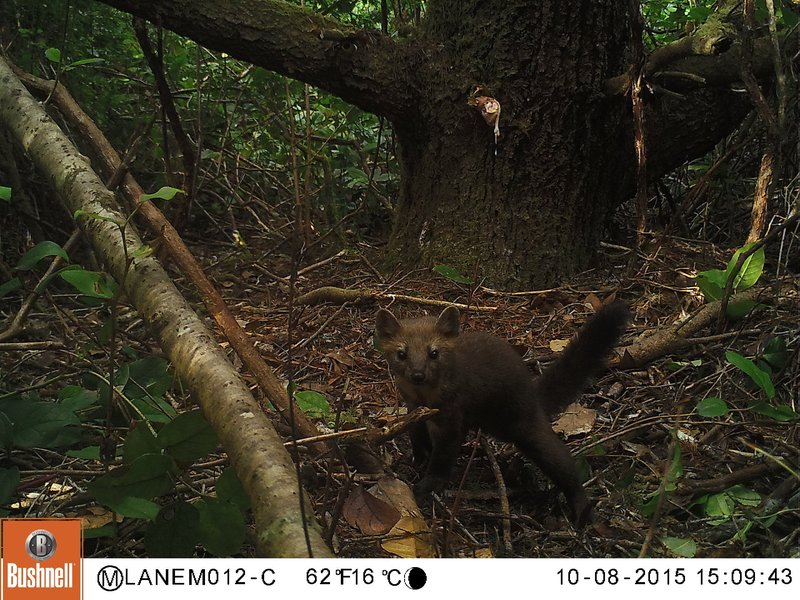For Immediate Release, May 1, 2025
|
Contact: |
Tala DiBenedetto, (718) 874-6734 x 555, [email protected] |
Injunction Sought to Protect Oregon’s Coastal Martens From Off-Road Vehicles
EUGENE, Ore.— The Center for Biological Diversity today asked a federal judge to protect coastal martens from huge, destructive off-road vehicle events set to take place this summer in the Oregon Dunes National Recreation Area.
These off-road vehicle events, held with U.S. Forest Service approval, bring thousands of loud and destructive vehicles into coastal marten critical habitat during sensitive periods when marten kits are still dependent on their mothers. Coastal martens are shy, solitary, imperiled animals related to otters and weasel, and only a few hundred remain alive.
“These noisy, out-of-control events wreak havoc on Oregon’s precious martens and the local community,” said Tala DiBenedetto, carnivore conservation staff attorney at the Center. “Off-road vehicles have a place on the Oregon Dunes, but the Forest Service has to protect the key habitat and corridors that these incredibly imperiled little animals need to survive. We’re asking the court to step in and ensure that the dunes remain a place for both wildlife and people to enjoy.”
In 2024 the U.S. Fish and Wildlife Service designated approximately 1.2 million acres of critical habitat for the marten, including 28,843 acres in the Oregon Dunes National Recreation Area, covering nearly the entire Oregon Dunes. Despite this, the Forest Service is set to issue permits for more off-road vehicle events this summer.
Ongoing off-road vehicle use on the dunes harms the coastal marten through noise disturbance, habitat destruction and risk of vehicle strikes. These risks intensify during riding events permitted by the Forest Service — like Coos Bay’s “UTV Takeover” held annually in June and “DuneFest” held in late July.
The Center’s underlying lawsuit challenges the Forest Service’s failure to comply with the Endangered Species Act, National Environmental Policy Act and its own mandates set out in land-management plans for the Siuslaw National Forest and Oregon Dunes National Recreation Area.
Fewer than 400 coastal martens remain in four highly isolated populations in Oregon and California. Approximately 71 of those individuals live in the Oregon Dunes National Recreation Area, which the Forest Service manages. Scientists warn that the fragile marten’s population on the Oregon Dunes could be wiped out if people cause the deaths of just two or three of the imperiled animals in a single year.
“Coastal martens were once thought to be extinct and the Forest Service has a rare second chance to ensure the survival of these magnificent carnivores in the Oregon Dunes,” said DiBenedetto. “That chance isn’t worth throwing away just to permit a few raucous events.”
Background
Martens are small, stealthy carnivores in the weasel family with long, slender bodies, large triangular ears and bushy tails. They grow up to 2 feet long but weigh under 3 pounds and must eat one quarter of their body weight daily to support their high metabolism. Martens eat small mammals, birds, berries, reptiles and insects and are eaten in turn by larger mammals and raptors.
Coastal martens were thought to be extinct until they were rediscovered in the 1990s in northern California. The Center first petitioned the Service to protect coastal martens nearly 15 years ago. After multiple lawsuits by the Center, the agency protected the martens as threatened in September 2020.

The Center for Biological Diversity is a national, nonprofit conservation organization with more than 1.8 million members and online activists dedicated to the protection of endangered species and wild places.

